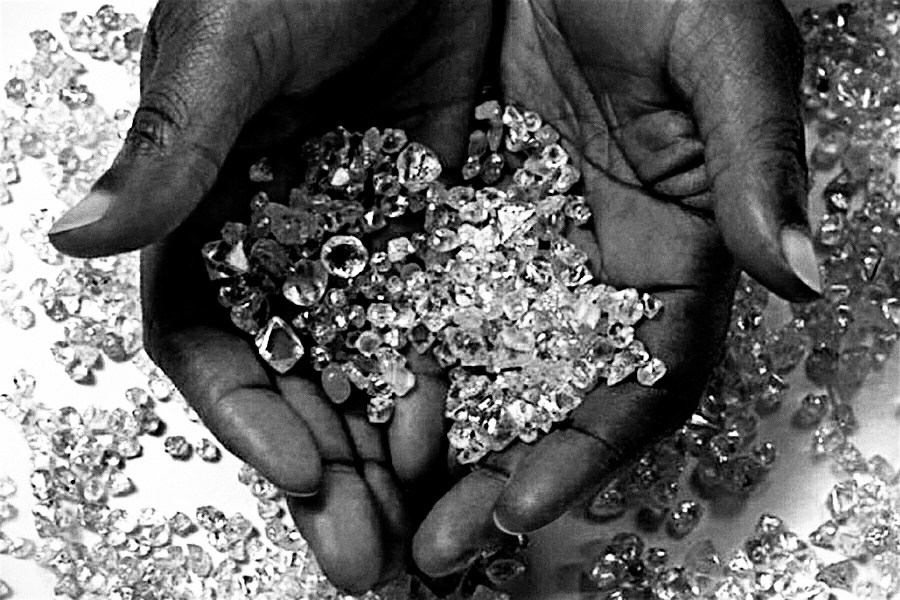The term “Blood Diamond” evokes images of conflict, human suffering, and ethical quandaries surrounding the diamond trade. In this comprehensive analysis, we delve into the origins, impacts, and ongoing efforts to address the issues associated with blood diamonds. Our goal is to provide a thorough understanding of this complex topic, shedding light on both the historical context and the modern implications.
Historical Context of Blood Diamonds
The Emergence of Conflict Diamonds
Blood diamonds, also known as conflict diamonds, first came into global consciousness during the late 20th century. These diamonds are mined in war zones and sold to finance armed conflict against governments. This illicit trade has been particularly prevalent in African countries such as Sierra Leone, Angola, and the Democratic Republic of Congo.
Impact on Local Populations
The extraction of blood diamonds has had devastating effects on local communities. Forced labor, displacement, and severe human rights abuses have been rampant. Rebel groups have used the profits from these diamonds to fund their operations, leading to prolonged conflicts and significant loss of life.
The Global Response to Blood Diamonds
The Kimberley Process Certification Scheme
In response to the outcry over blood diamonds, the international community established the Kimberley Process Certification Scheme (KPCS) in 2003. This initiative aims to prevent conflict diamonds from entering the mainstream diamond market. The KPCS requires member countries to certify that their diamond exports are conflict-free.
Effectiveness and Criticisms of the Kimberley Process
While the Kimberley Process has made strides in reducing the flow of conflict diamonds, it is not without its critics. Some argue that the scheme lacks rigorous enforcement and transparency. Additionally, loopholes and smuggling continue to undermine its effectiveness. There are ongoing calls for reform to ensure the process can more effectively address the root causes of the trade in blood diamonds.
Economic and Ethical Implications
Economic Impact on Diamond-Producing Countries
The diamond industry plays a crucial role in the economies of several African countries. However, the presence of conflict diamonds has tainted the industry, leading to reduced investment and trust. Efforts to eliminate 블러드 다이아몬드 다시보기 are not only ethically necessary but also economically beneficial, as they can help stabilize regions and promote sustainable development.
Ethical Consumerism and Market Demand
The rise of ethical consumerism has led to increased demand for conflict-free diamonds. Consumers are more aware of the origins of the products they purchase and prefer those that do not contribute to human suffering. This shift in consumer behavior has prompted many jewelry companies to adopt stricter sourcing policies and enhance transparency in their supply chains.
Modern-Day Challenges and Solutions
Technological Advances in Diamond Tracking
Recent technological advancements offer promising solutions for tracking the origins of diamonds. Blockchain technology, for instance, provides a transparent and immutable ledger that can trace a diamond’s journey from mine to market. This can significantly reduce the likelihood of conflict diamonds infiltrating the supply chain.
Corporate Responsibility and Industry Initiatives
Many diamond companies have taken proactive steps to ensure ethical practices. Initiatives such as the De Beers’ Tracr project and Everledger’s blockchain-based platforms are leading the way in creating a more transparent and accountable industry. These efforts are crucial for maintaining consumer trust and ensuring the long-term viability of the diamond market.
Case Studies: Countries Affected by Blood Diamonds
Sierra Leone
Sierra Leone is often cited as a primary example of the devastating impact of blood diamonds. During the 1991-2002 civil war, rebel groups controlled diamond-rich areas and used the proceeds to finance their insurgency. The Kimberley Process has helped reduce the trade in conflict diamonds from Sierra Leone, but challenges remain in fully eradicating the problem.
Angola
Angola’s diamond industry has also been marred by conflict. The country’s civil war, which lasted from 1975 to 2002, saw significant involvement from rebel groups financed by diamond sales. While peace has been achieved, the legacy of blood diamonds continues to affect the country’s economy and social fabric.
Democratic Republic of Congo
The Democratic Republic of Congo (DRC) has one of the world’s richest deposits of natural resources, including diamonds. However, the DRC has been plagued by conflict and corruption lab created diamonds, with blood diamonds playing a significant role in funding armed groups. International efforts continue to focus on stabilizing the region and ensuring responsible mining practices.
The Future of the Diamond Industry
Sustainable and Ethical Mining Practices
The future of the diamond industry lies in sustainable and ethical mining practices. This involves not only preventing conflict diamonds but also addressing environmental concerns and ensuring fair labor practices. Initiatives like the Diamond Development Initiative (DDI) work towards improving the standards of artisanal mining and ensuring that mining communities benefit from their natural resources.
Consumer Education and Advocacy
Educating consumers about the origins and ethical implications of their purchases is key to driving change. Advocacy groups and NGOs play a vital role in raising awareness and pushing for more stringent regulations and practices within the diamond industry. Informed consumers can make choices that support ethical practices and contribute to the elimination of blood diamonds.
Conclusion: Towards a Conflict-Free Future
The journey towards a conflict-free diamond industry is ongoing. While significant progress has been made through initiatives like the Kimberley Process, there is still much work to be done. Collaboration between governments, industry players, and consumers is essential to create a transparent, ethical, and sustainable diamond market. By supporting responsible mining practices and demanding transparency, we can help ensure that the diamond industry contributes to positive development and peace in affected regions.

